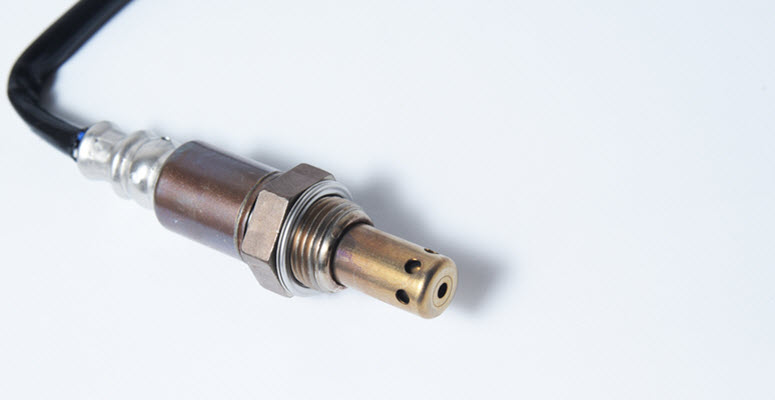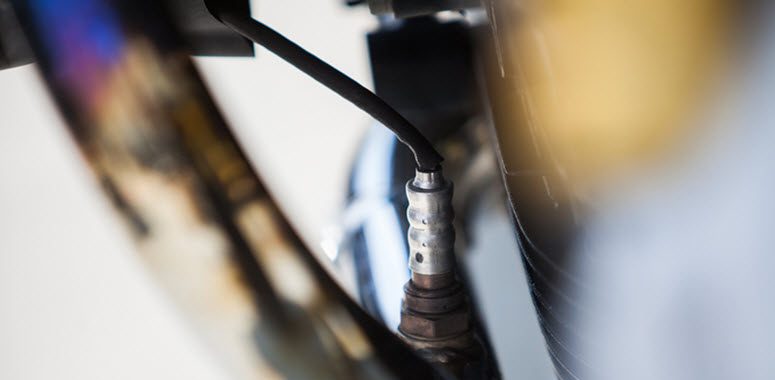How To Diagnose a Faulty Oxygen Sensor in Your Audi
by wp_germanmotorspb May 15, 2018
For most drivers efficiency is one of the biggest factors that go into choosing a new car. Considering the high gas prices and high costs of maintenance for most cars it is important that your car stays properly tuned and free of performance issues that can cause the expenses to add up. With a reputation for high performance and surprising fuel efficiency for a luxury car, Audi continually works to provide drivers with the best of both worlds. One of the most important pieces in your Audi’s efficiency is the Oxygen Sensor (O2 sensor).
The O2 Sensor helps tell your engine the correct fuel to air ratio that it needs. It allows the fuel injection and engine timing to work together more efficiently but when it begins to go bad or fail your car’s ratios become thrown off and sporadic. If your Audi’s O2 Sensor is experiencing issues or starting to fail you may notice various signs and developing issues that warn you something is wrong. You can save yourself a lot of time and money by paying attention to the following warning signs and symptoms of a failing oxygen sensor.
Check Engine Light Stays On
One of the first signs something is wrong is the check engine light but unfortunately the check engine light can indicate a wide variety of potential problems and repairs. If your check engine light comes on and you don’t notice any other signs make sure to seek out your mechanic as soon as possible to have it properly diagnosed. One key to remember is in high mileage, older vehicles a bad O2 Sensor is one of the likeliest causes for the check engine light to turn on.
Poor Fuel Economy
Since it’s the job of the oxygen sensor to help the fuel to air ratio mixture perform properly in your engine if something is wrong or your O2 sensor is going bad you may notice it at the gas pump first. If it feels like you’re filling up far too often make sure to keep a record of when you get gas and if it seems like it’s an unusually high amount it may be the oxygen sensor.
Rough/Poor Vehicle Performance
Another telltale sign that something is wrong in the engine is the overall performance of your Audi. Things like rough idling, excessive stalling or hesitations when accelerating can all mean something is wrong with the function of your engine. Because it helps control engine timing and combustion intervals a faulty oxygen sensor is the likely culprit behind those performance issues.
Know When To Have Your Audi Serviced
Just like with any other preventative maintenance for your Audi the O2 sensor should be replaced after an extended period of use. Typically it should be replaced between 60,000 and 90,000 miles if your car was made within the last 15 years. However the sensor is a wear and tear item and can fail faster over time if something else is wrong and impacting its’ performance and usage. Routine service appointments are a great way to diagnose the overall health of your car and to address any developing performance issues with the O2 sensor.
San Diego’s Premiere Audi Service Center
Whether you need your oxygen sensor replaced or additional Audi services designed to help your vehicle’s performance, the friendly staff at German Motors & Imports have everything needed to get the job done right. A quality alternative to the dealerships, we provide the same services you would receive there with:
- Factory grade repair parts and replacement materials
- Newest diagnostic tools and equipment
- ASE certified mechanics with decades of experience
Conveniently located in San Diego, CA we also assist drivers from the Clairemont, La Jolla and Pacific Beach areas as well.
Call Us Today
If your Audi is experiencing any of the above issues or other unusual performance difficulties please call us today. Our team is here to help and will work as fast as possible to diagnose and repair your Audi so that you have it back to you in perfect working condition with minimal inconvenience. Whether it’s a failing O2 sensor or another developing problem our team has the experience and equipment needed to make sure the job gets done the right way.

